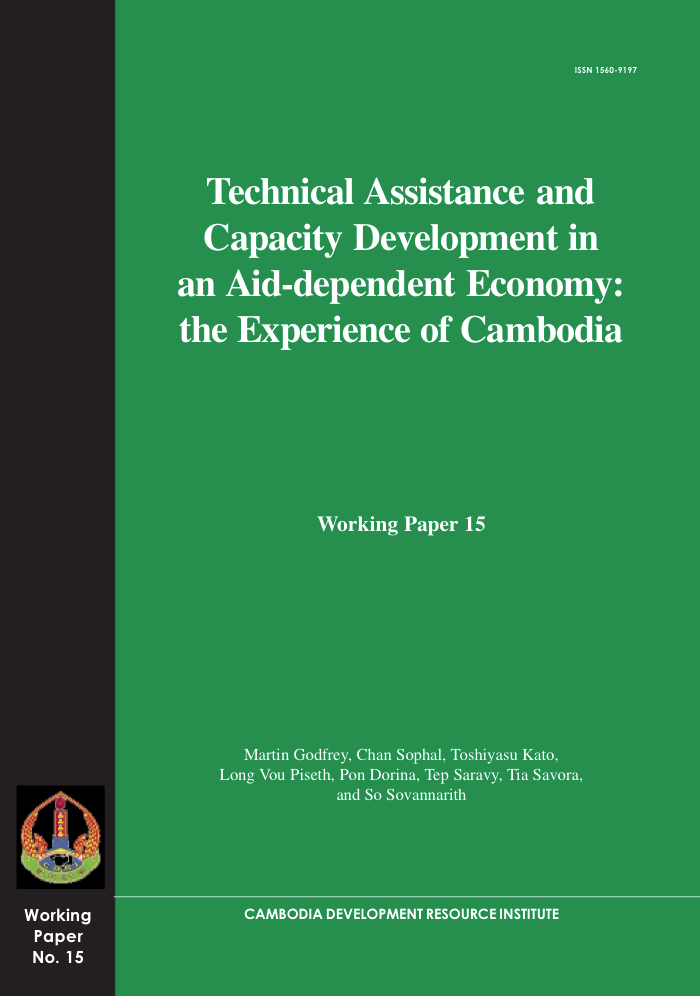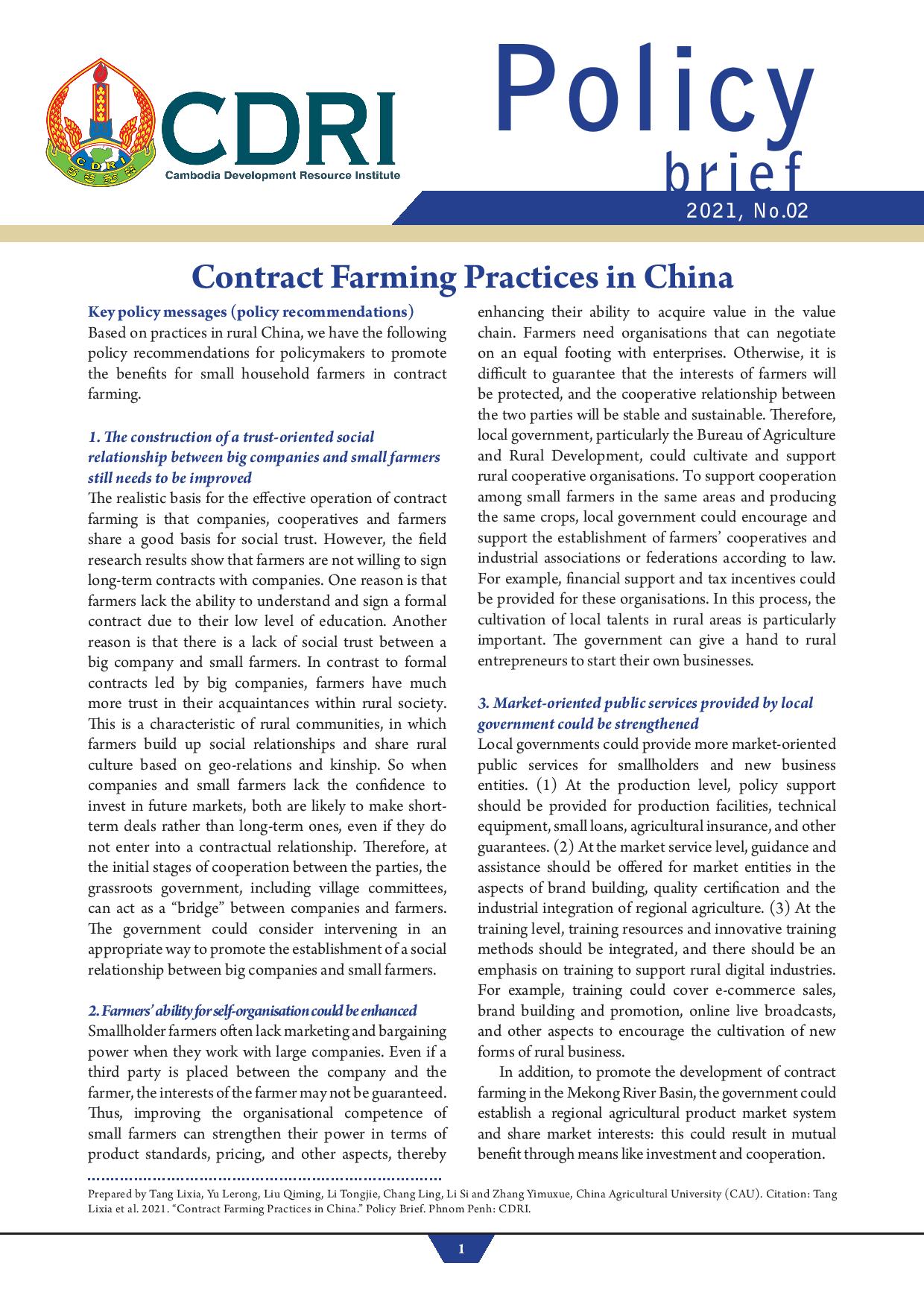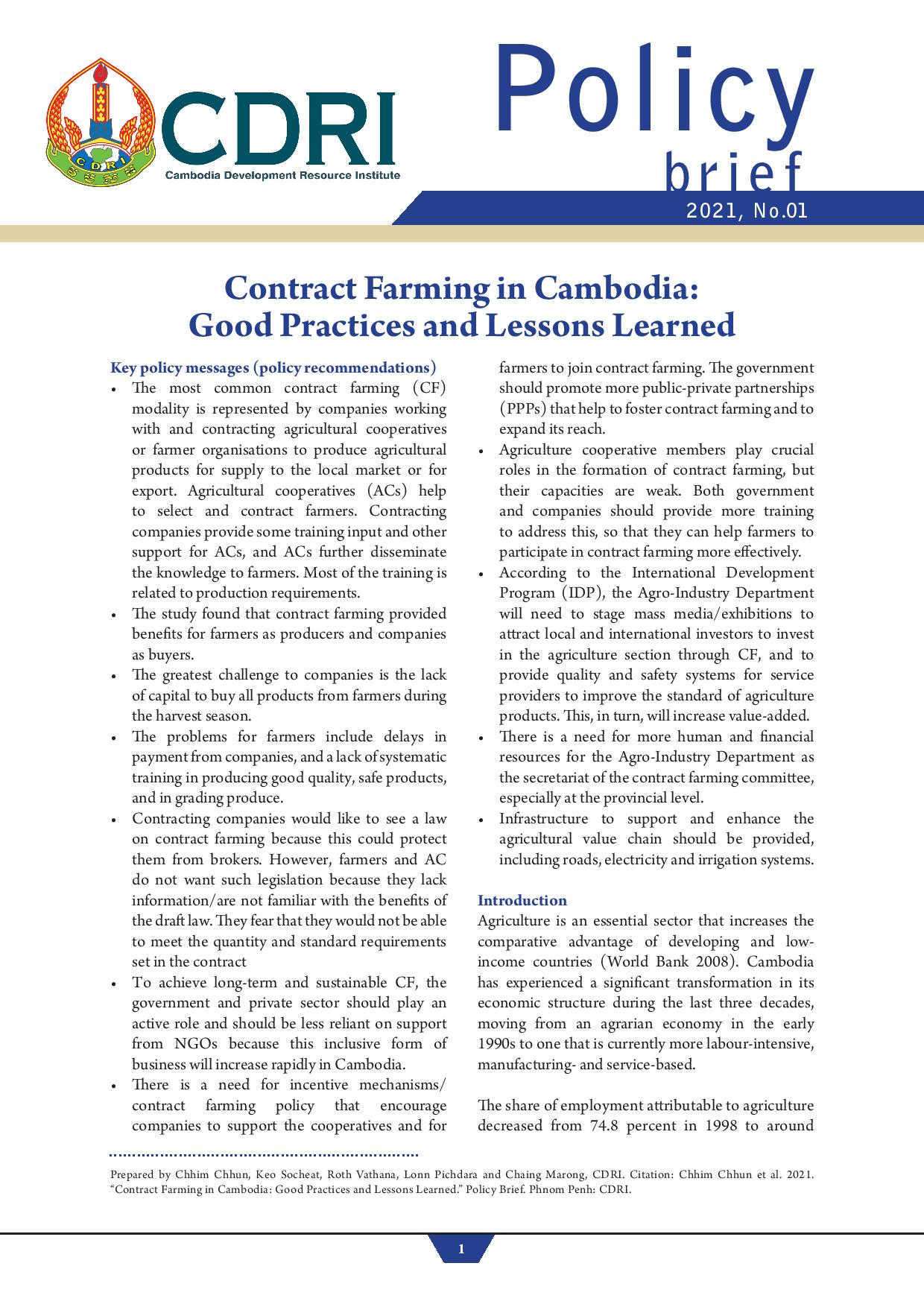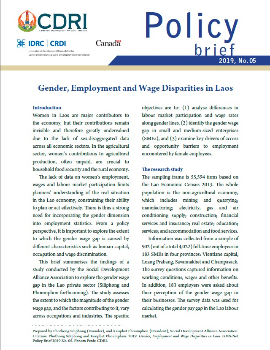
Technical Assistance and Capacity Development in an Aid-dependent Economy: the Experience of Cambodia
Abstract/Summary
Cambodia is aid-dependent: the scale of aid is of such magnitude that it distorts the economy in two important ways. First, a high proportion of Cambodia’s best-educated people either work for donor agencies or international non-government organisations (NGOs) or have been assigned to donors’ projects as counterparts. This raises the price of educated labour and hinders the development of skill-intensive production and exports. Second, donors and NGOs have virtually taken over the funding of education, health care, social welfare, rural development etc., while government spends most of its funds on defence and security. In addition, donor funding eases pressure on government both to increase collection of revenue and to raise the salaries of government employees because so many top- and mid-level officials receive salary supplements as project counterparts.
To what extent can external technical assistance develop the capacity of counterparts, whether in government or in local NGOs, in an aid-dependent economy of this kind? In 1998 and 1999, CDRI undertook extensive research to answer this question. As well as analysing data from the Cambodian Rehabilitation and Development Board, CDRI researchers undertook wide-ranging interviews with senior officials in government and donor agencies, and with past and present technical advisers and counterparts. The research also included case studies of the School of Agriculture Prek Leap (SAPL), the National Institute of Management (NIM), the National Institute of Statistics (NIS), and of HIV/AIDS and malaria programmes (in particular, those in Battambang province).
Cambodia’s experience since 1993 suggests that, although some positive results have been achieved in the development of individual capacity, most projects in such a situation are donor[1]driven in their identification, design and implementation, to the detriment of institutional capacity development. Connected with this is the chronic under-funding of government in such an economy, which hinders implementation of projects and threatens post-project financial sustainability. Most former counterparts have either left government or are only part[1]time government employees. They still benefit the economy, but it is presumably not the main intention of technical assistance to prepare government officers for non-government work. Unless donors develop a coherent strategy (rather than competitive, project-related salary supplementation) to deal with this situation, the record of TA in developing the capacity of government will continue to be disappointing, and an escape from aid dependence will be postponed.
The basis for discussions between government and donors about a code of conduct for technical assistance is suggested, including: the replacement of project-related salary supplementation by a sector-wide salary fund; two-way transparency; implementation through intermediary organisations; government ownership of projects; guidelines for the use of technical advisers by government departments; re-examination of the concept of Project Implementation Units; a rule that no external projects should by-pass government structures; and a definition of the role of government, as a facilitator, prudential regulator and coordinator of technical assistance, rather than detailed controller. Such a code would be seen as a first step towards developing a Sector Wide Approach to technical assistance in Cambodia.



